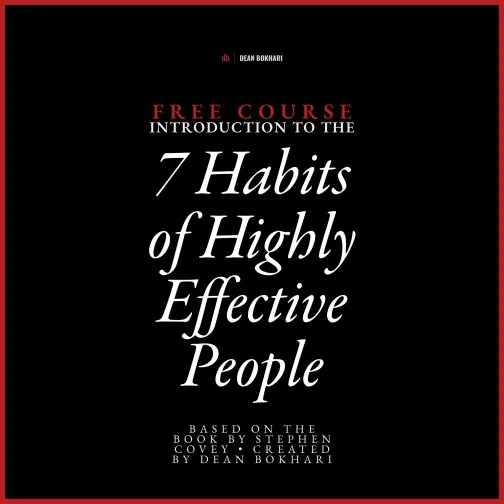Book Summary: Stand And Deliver
AUTHOR: DALE CARNEGIE
Communication skills play an integral role in a leader’s ability to get her message across. In fact, it's an absolutely essential leadership trait. One of the first books I picked up when I first decided to polish up my own speaking skills was “Public Speaking For Success” by Dale Carnegie (highly recommended). Shortly after reading the book, I was hungry for more, so I picked up an audio program called “Stand & Deliver” - also by Dale Carnegie. The program is about 4.5 hours in length, and it's jam-packed with useful speaking strategies, just as applicable for the modern-day social entrepreneur as they are for old-school leaders of yesteryear. In this FlashNote, you're getting a "best of the best" list of speaking tips and techniques extracted from Dale Carnegie's "Stand & Deliver" program, along with annotated comments and actionable insights peppered throughout.
Lets get started, shall we?
Communication Leadership Trait #1 : Know What You’re Talking About
- Prepare at least 10 days before speech
- Take 20 mins to write down atleast 50 questions about my talk
- During the first 20 mins (no more) you're creating an outline.
- Very important to put them in questions.
- Carnegie stresses that we do this with pencil and paper.
- Create a document file for your questions and answer them based on what you know (casual).
- Complete your answers 3-4 days before your talk.
- You don't have to report everything about your subject to the audience.
- Don't try to tell the audience EVERYTHING — this just can’t be done.
- Be frank with the audience about your level of knowledge about a topic.
- Goal should always be to share your genuine point of view with the audience.
Communication Leadership Trait #2 : Key: Rehearsing + Organizing Your Talk
-
DO NOT memorize your talk, instead, use rehearsal as your primary means of preparation.
Rehearsal: think about, and continue to re-think about, the topic of your talk for atleast 10 days, go over it in your mind over and over and over. Think of new ideas you can come up with and potentially add to your outline. - Think about your listeners and their expectations, think about your own expectations.
- Think about the physical location; how big is the room? how many people?
- In your own mind clearly identify your subject and purpose.
- Say your speech out loud in front of the mirror or in the car.
- Practice the talk with friends. Brainstorm with them. Pay attention to their responses.
- Keep "The Rule Of Three" in mind. This rule implies that you organize your talk around:
-- 3 main sections
-- 3 subsections
-- 3 more subsections (if enough content).
Communication Leadership Trait #3 : Powerful Delivery
- Conviction and enthusiasm are KEY!
- Connect with the audience.
- Must be just like an intimate conversation.
Carnegie suggests that the key to effective public speaking is more about the MIND than the HEART. - Moreover, he stresses that your talk should seem emotional to your audience, but what the audience sees/hears is just a fraction of whats going on. In other words, methodical preparation and strategic planning + practice will result in an effective talk.
- Bottom line: adopt a scientifically analytical viewpoint when prepping, planning, and practicing for the final delivery of your talk — all the while ensuring that your strategic approach doesn’t encroach on your ability to bring emotional intensity when you finally deliver the talk.
Know What Word To Emphasize: Stress & Pitch
- Principle 1: conscious choice of which words to emphasize
- Pitch is the quality of tone. Be sure to vary the pitch as well.
- Make your tone a conscious choice. Get verbally on point stress, pitch, speed..
- Speed of voice: go fast on unimportant words and slow down with emphasis on the important words
"Know Thyself"
Finding Out What Your Audience Finds Fascinating:
- Make it the best speech the audience has ever heard
*Russell Conwell (one of Dale Carnegie's favorite speakers):
- Best known speech: 'Acres of Diamonds' - given over 6,000 times!
- He knew that no 2 audiences are alike
- Made people feel like he was addresses them and only them
- He tried to arrive early and learn about the people, talk to them, and when he gave his lectures, he knew how to deliver it based on their interest… taking into consideration their unique hopes, problems, and dreams.
Key Idea: Your Listeners Are Most Interested In Themselves:
- By creating a linkage between this self interest and what topic you have, you can guarantee their attention.
- Axiom #1 - no matter what you're talking about, always connect it directly to the self interest of the audience.
- Axiom #2 - always be sincerely grateful and appreciate your audience, and let them know about it somehow with a sincere statement.
Show it by immediately identifying with the audience. Indicate some direct relationship with the audience. - A connection can always be found/identified. For example, if delivering a college speech in Virginia, you might say "my mother was born in Northern Virginia, and my father went to Virginia Commonwealth University.
The Importance of Eye Contact:
- Axiom #3 - effective speakers use visual stimuli to enhance what they have to say. Eye contact always key.
- Make everyone feel like you're focusing on them, and them alone.
- Actor's from the silent film era, like Charlie Chaplin were fantastic at conveying their messages/emotions with eye contact.
- Bringing notes can be a good idea… however, pro speakers use their notes properly, only glancing down after a big statement. Keep this in mind should you decide to bring index cards to the podium.
The Importance of Your Physical Appearance:
It would be great if we lived in a world where people didn't judge you based on how nicely you were dressed, or any of the other extrinsic/externally-based indicators; but rather, on the degree of integrity one lives to a predetermined, conscious value system... Unfortunately however, we haven't helped enough of the toxic leaders in our world wake up yet. That said, there are some important items we've got to keep in mind in terms of how we choose to present ourselves on the podium. Here they are.
- Dress like your listeners when appropriate
- No jingly, noisy jewelry
- Check yourself out before going up
- The way you move is critical - walk briskly, with purpose, calm, and smile. Try to relax.
Initially, don't look at the audience, look at the introducer.
Alright, that about raps it up for Part I. of this two part Leadership Speaker Series on how to become an effective speaker.
Here's what we get into on Part II. of Dale Carnegie's notes on public speaking:
- Dealing with anxiety
- Being funny
- How to tell compelling stories
- Effectively connecting with your listeners
- How to arouse interest and curiosity in your audience
I hope these tips and techniques were helpful. Click here for access to Part II. which is available at the FlashNotes Book Summaries library.
Free self-development courses
👇
Tap on any of the courses below to start learning how to:
- boost your productivity (withGTD),
- get focused (with Deep Work),
- design a successful + fulfilling life (with The 7 Habits course),
- or learn the art of influencing others (with the How to Win Friends & Influence People course.)
All for free.
👇
Free life guides
👇
Best-selling Self-development courses by Dean Bokhari
Kill procrastination.
|
Get stuff done.
|
Get motivated.
|
Connect with anyone.
|
freshly pressed:
Top Audiobooks narrated by Dean Bokhari on audible
Book summaries
- The Power of Habit by Charles Duhigg
- 12 Rules for Life by Jordan B. Peterson
- Presence by Amy Cuddy
- Leaders Eat Last by Simon Sinek
- The ONE Thing by Gary Keller, Jay Pasan
- Deep Work by Cal Newport
Read or Listen to top Self-Help + Business Book Summaries in 20 Minutes or Less.
or






































